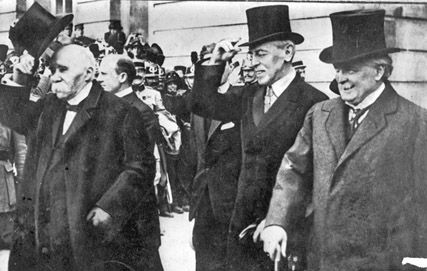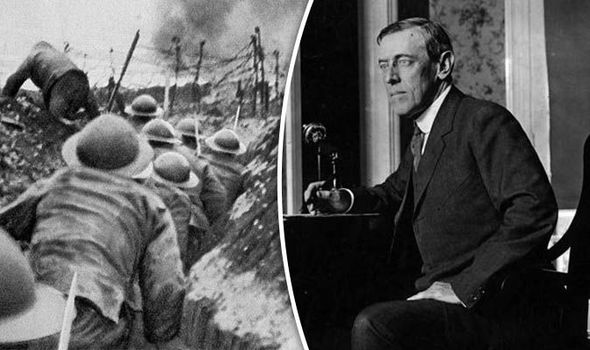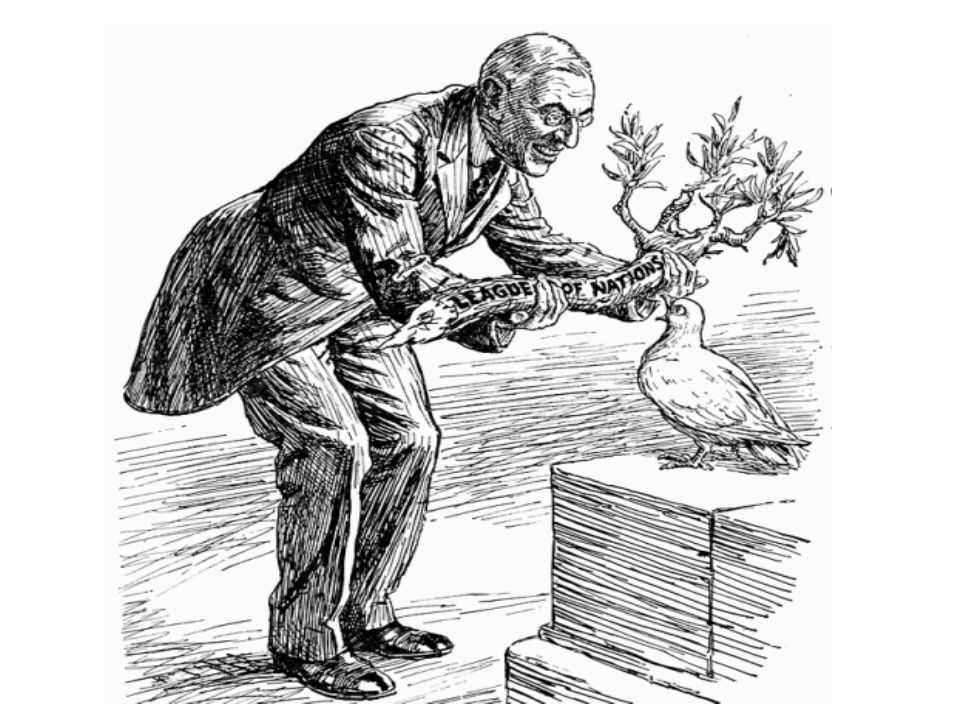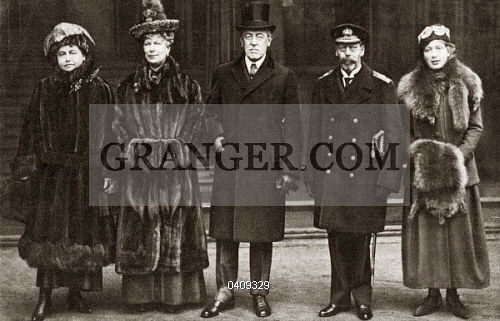Wilson in Britain, New States Appearing
How to Handle Them?
Wilson Agitates for a League of Nations
Special to The Great War Project
(24 December) With the American President Woodrow Wilson now in Europe a century ago, the debate sharpens over which of the Allies was most responsible for defeating the Germans.
Wilson is vociferous in his quite public claim that it was the Americans. The British and French of course challenge that view.

The Big Three Allies, The French, British with Wilson.
Answering that question is quite a serious matter. It will have quite an impact on how the postwar world is organized.
While waiting for the peace conference to start in Paris in January 1919, Wilson in Europe travels to Britain where another Ally awaits its turn to take on the issue.
In London, he meets with the prime minister David Lloyd George.
He is not greeted with great warmth. The British remember Wilson’s early stance on the war and the president’s slogan “peace without victory.”
In several speeches Wilson recalls those words. “I have conversed with the soldiers,” he says in one speech. “They fought to do away with an older order, and to establish a new one.

Wilson ponders the end of the war.
According to historian Thomas Fleming, “Wilson was telling the British that American intervention had won the war, and he was now in charge of reordering the world.”
The British have another view. “Already taking shape,” Fleming reports, “was the fixed opinion in Britain that they, not the Americans, won the war.”
The distrust between the Americans and the British was rapidly growing deeper. “Wilson compounded this alienation,” Fleming writes, “by suggesting that this new order might well require considerable changes in the British empire.
In a talk with David Lloyd George, the British leader, Wilson emphatically insists that Germany’s colonies should not be handed over to the war’s victors. Instead, they should be placed under the supervision of something called a League of Nations, an institution just beginning to take shape. The idea is to place the new states emerging from the war in some kind of trusteeship or mandate to be administered internationally.

Political cartoon, League of Nations with broken olive branch.
“Wilson also opposed punitive reparations against Germany, the issue on which Lloyd George had just won a huge election victory. When Lloyd George reported all this to his Tory-packed cabinet, Fleming writes, “consternation and outrage were the order of the day.”
Nevertheless, the British arrange a banquet for Wilson in his honor at Buckingham Palace at which King George V takes part. Wilson was greeted in a friendly manner, but not effusively. No warm glow of friendship.
Writes historian Fleming, in a private talk with the king, Wilson advises him to refrain from any references to a special relationship between Great Britain and the United States. Don’t refer to the two nations as cousins or to the Americans as Anglo-Saxons, he advises the King.

Wilson, center, in London with British King George, second from right.
There were only two ways that Wilson approved of describing the American/British relationship: a sharing community of ideals and of interests.
Historians write that the King came away thoroughly repulsed by the president. He told his private secretary: “I could not bear him. An entirely cold academical professor. An odious man.”
